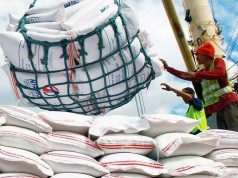THE Department of Trade and Industry (DTI) is seeking to conclude a preferential trade agreement with Turkey with the intention of helping revive the Philippine textile industry.
“We are evaluating whether a preferential trade agreement is possible. We see an opportunity for sourcing certain strategic products,” Trade Undersecretary Ceferino S. Rodolfo told reporters on the sidelines of the first Garments and Leather Goods Expo held last week in Pasay City.
He cited the potential for sourcing raw materials like cotton from Turkey to supplement other sources like China, South Korea, Indonesia and Vietnam.
In turn, the Philippines can offer electronic products, tropical fruit and automotive parts.
The garment and textile industry exported $3 billion worth of goods as recently as 15 years ago, but is now down to just over $1 billion.
The DTI is in the process of drafting a five-year leather and garment industry road map.
The DTI said in 1970 the Philippines was the sixth-largest exporter of apparel to the United States, the world’s biggest buyer.
Last year, the industry exported a total of $1.02 billion to all destinations and expects growth of 10% this year due to spillover effects from the US-China trade war.
The DTI is also pushing for the garments industry to be included in the investment priorities plan, granting companies a four to six-year income tax holiday. The department said it is also pushing for garments to be included in the US generalized system of preference (GSP) scheme.
The GSP program covers a total 5,057 products, or some 47.7% of the 10,600 total US tariff lines. Of these, about 3,500 are open to all beneficiary developing nations while least-developed countries can export 1,500 more products under the scheme. — Janina C. Lim



